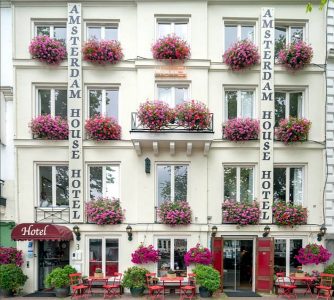Last March three international teams (L214, Ethical Farming Ireland and Eyes on Animals) trailed four trucks from Irish assembly centers to veal farms in the Netherlands. The trail included trucks from the Irish companies Hallissey and Hinde and the Dutch company Gebroeders Poll. The investigation reveals the stressful 3-4 day long journey and in-transit activities of young calves, such as being sold in noisy auction rings, sorted at calf assembly centres and being brutally hit and kicked during the feeding period at control posts. After the stressful journey and several breaches in animal transport legislation, calves end up in small and barren pens, with a hard wooden floor, where they will spend the rest of their short lives. Most of these farms are under contract with VanDrie Group, market leader in veal worldwide.
Feeding intervals violated under the supervision of official authorities
Unweaned calves were being kept on board trucks for 30 hours and longer, during which time they are not being fed at all. The actual period without food is even longer as calves should rest for a couple of hours after feeding on the assembly centre before loading onto the truck, and some have to wait many hours before being fed at the control post – as several thousands of them arrive at the same time. Not feeding calves for such a long period is in violation of Council Regulation 1/2005 which requires feeding after a maximum of 19 hours. This feeding interval also applies to journeys on a roro ferry, which was already confirmed by the European Commission in 2020. Nevertheless these journeys – that routinely violate the maximum feeding intervals – continue to be approved by the Irish authorities and executed by the industry, such as VanDrie Group. Unweaned calves, like all babies, are dependent on milk for all their nutritional needs and have an inherent need to suckle. They do not yet have a fully developed immune system which makes them very vulnerable to diseases. Depriving them of milk for such a long period is ethically unacceptable. Besides Gebroeders Poll, there were also trucks from the Dutch company Drost involved in the illegal import of calves from Ireland. In one of their trucks two calves died before they even arrived at the Spanish veal farm.
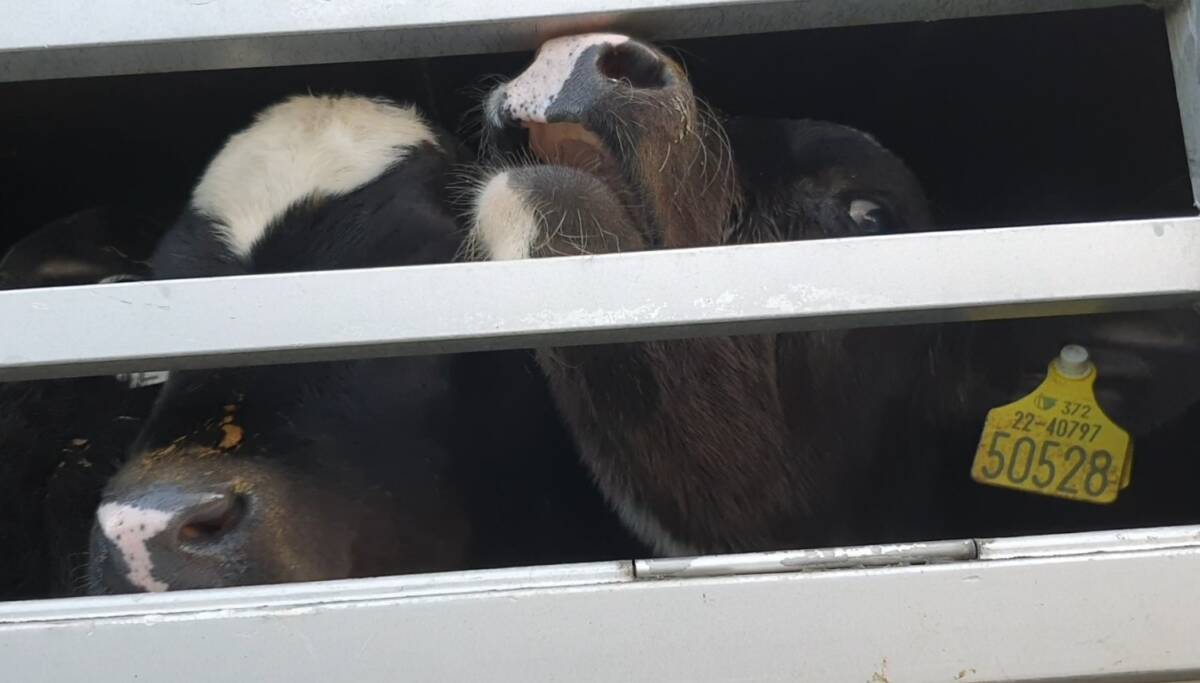
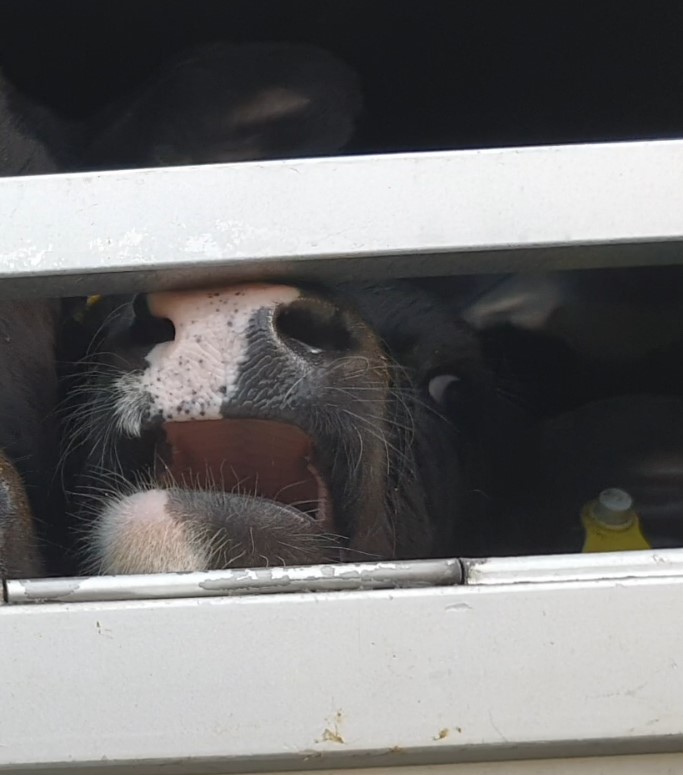
Calves abused at the control post
Each year tens of thousands of Irish calves, exported to Dutch veal farms in, are transported via control post Pignet in Couville (FR). Here the calves need to be unloaded, fed and rested for 12 hours, as required by Council Regulation 1/2005. A high pressure working environment (thousands of calves arriving at the same time and in need of milk within a short period of time) leads to workers venting their frustration on the calves. Footage, taken in March 2023, reveals that the treatment of the calves at Pignet is still horrendous, as has been exposed in previous years’ footage. Calves are routinely beaten hard on their heads and backs with sticks and paddles, they are kicked, thrown over and dragged by their legs, ears and tails. Paddles and sticks are often lifted above shoulder height of the staff to increase force and pain onto the calves. The authorities must no longer allow so many calves to arrive at the same time and that (camera) supervision is increased.
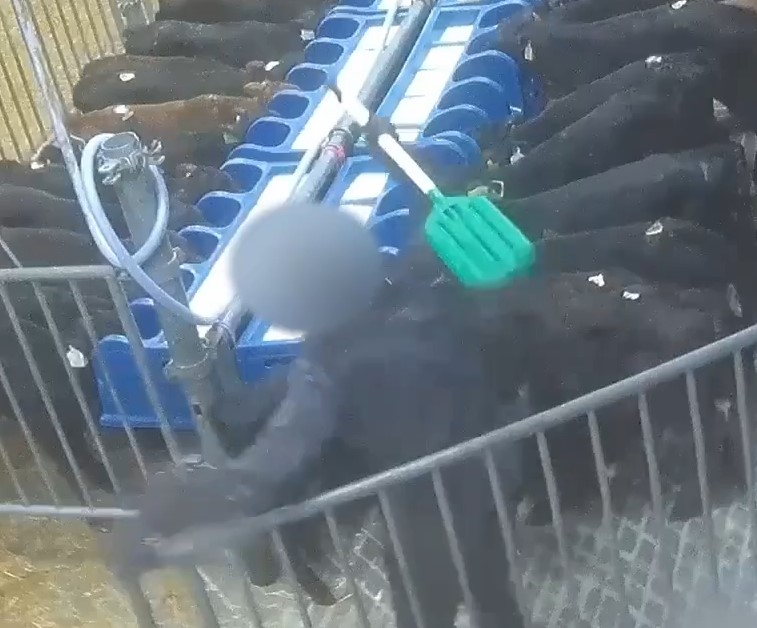
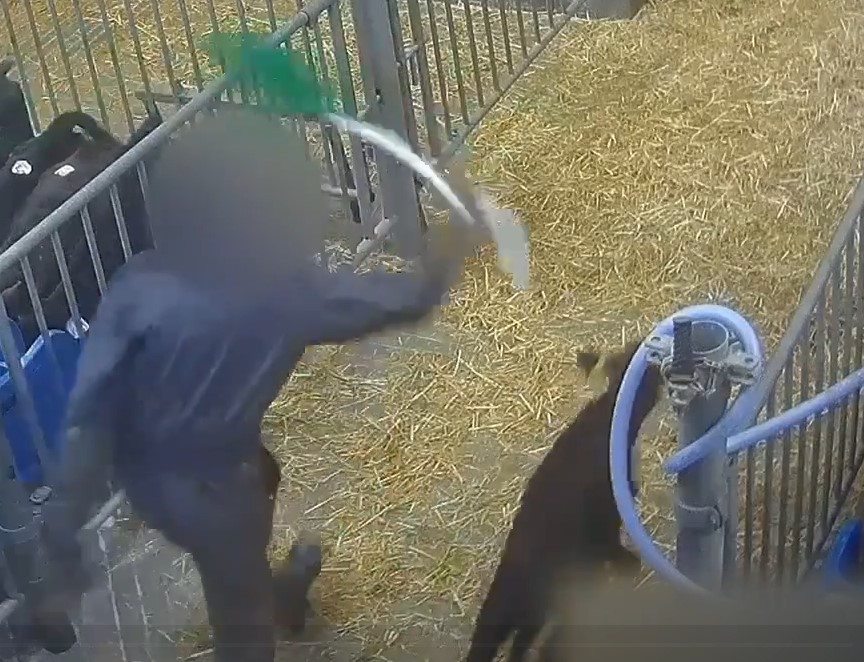
Sad life on veal-farms
After traveling for several days and being subjected to the stresses of marts, assembly centres and even abuse at control posts, calves end up in barren, tiny (individual) pens with a hard slatted wooden floor to lie on. This is where the calves will spend the rest of their lives. It is a shame that such young, conscious and playful animals cannot are given absolutely nothing that makes their life worth living.
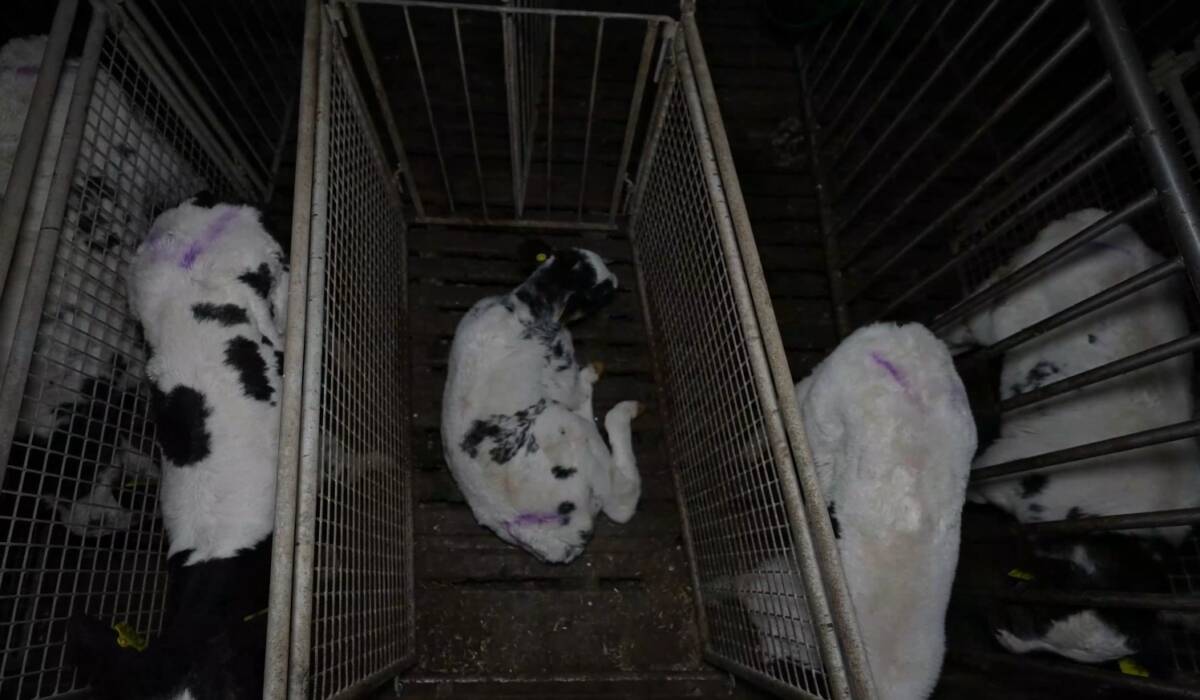
Eyes on Animals, together with EFI and L214 will continue their efforts until this illegal trade, on the backs of young, vulnerable calves, will end: by sending letters to the official authorities, the European Commission, MP’s, industry stakeholders and by taking legal action, generating media exposure and continuing our inspections.

